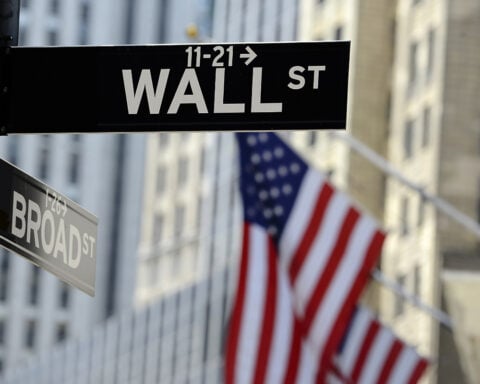Asian markets displayed mixed performance on Thursday, reflecting growing apprehension among investors regarding the likelihood of an immediate interest rate cut in the United States. Japan’s benchmark Nikkei managed to edge up by 0.5% during morning trading, reaching a level of 35,637.01. Conversely, Australia’s S&P/ASX 200 experienced a 0.5% decline, closing at 7,357.40. South Korea’s Kospi fared better with a 0.6% gain, concluding the session at 2,450.00. However, Hong Kong’s Hang Seng faced a minor setback, dipping nearly 0.2% to settle at 15,251.64. Meanwhile, the Shanghai Composite endured a more substantial drop, plummeting 2.3% and closing at 2,768.90.
The uncertain outlook regarding the timing of potential interest rate cuts by the Federal Reserve reverberated on Wall Street, where major stock indices registered declines. The S&P 500 bore the brunt of this sentiment, slipping by 0.6% and shedding 26.77 points to reach a closing figure of 4,739.21. This marked the second consecutive dip for the index, following ten weeks of consecutive gains that had brought it close to its all-time high. The Dow Jones Industrial Average was not immune to this trend, posting a 0.3% decrease as it lost 94.45 points, settling at 37,266.67. Similarly, the Nasdaq composite tumbled by 0.6%, closing at 14,855.62.
The bond market played a pivotal role in influencing stock prices, with yields climbing after a report revealed that U.S. retailers had enjoyed stronger-than-expected sales in December. While this data suggests a resilient economy, it also carries the potential to sustain elevated inflation pressures, thereby delaying the anticipated interest rate cuts by the Federal Reserve. The yield on the 10-year Treasury promptly surged from 4.06% to 4.10% in response to the retail sales report. Elevated yields tend to exert downward pressure on stock prices by affecting corporate profits and investor sentiment. Notably, high-growth stocks like Tesla, which experienced a 2% decline, and Amazon, with a 0.9% drop, weighed heavily on the S&P 500. The Russell 2000 index, encompassing smaller companies, initially plummeted by 1.5% before partially recovering to a 0.7% loss.
The rise in the two-year Treasury yield, closely tracking expectations for the Federal Reserve’s actions, moved from 4.22% to 4.34%. This shift signifies a diminishing likelihood of an early rate cut, with traders now estimating a probability of less than 60% for a rate cut in March, down from approximately 70% a month earlier. Federal Reserve Governor Christopher Waller suggested that the central bank might exercise patience before implementing rate cuts, underscoring the economy’s resilience. In contrast, the head of the European Central Bank issued a cautionary warning against the risks associated with prematurely lowering interest rates.
Apart from interest rates, corporate earnings also exerted a significant influence on stock prices. Several companies reported results that fell short of analyst expectations, contributing to their stock underperformance. U.S. Bancorp and Big 5 Sporting Goods were among those reporting weaker results, affecting their stock performance. Charles Schwab, although reporting stronger profits, experienced a 1.3% decline in its stock value. Furthermore, Spirit Airlines faced substantial pressure, plummeting by 22.5%, following a U.S. judge’s decision to block its acquisition by JetBlue Airways, thereby raising concerns about potential higher airfares. JetBlue itself saw an 8.7% drop in its stock value.
In energy trading, the benchmark U.S. crude oil price increased by 20 cents, reaching $72.76 a barrel. Meanwhile, Brent crude, the international standard, remained unchanged at $77.88 a barrel. In currency markets, the U.S. dollar exhibited slight depreciation against the Japanese yen, falling to 148.03 yen from 148.11 yen. Conversely, it appreciated against the euro, climbing from $1.0886 to $1.0894.
In light of these developments, the confluence of factors has created a complex and cautious trading environment in both Asian and U.S. markets. Investors are closely monitoring events related to interest rates and corporate earnings as they assess the future trajectory of stocks and bonds.







